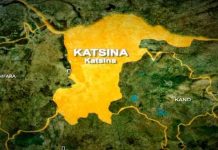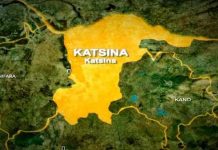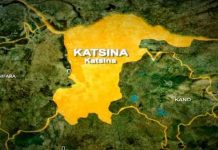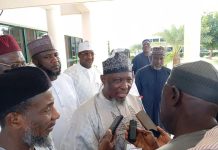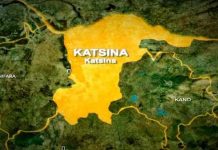By Abba Hamisu Sani
Africa-Press – Nigeria. Dr. Sa’id Ahmad Dukawa, a renowned political analyst and lecturer in the Political Science Department at Bayero University Kano, spoke with Africa Press on the constitutional implications of declaring a state of emergency in Nigeria.
He traced the history of emergency declarations from 1960, when Nigeria gained independence, to the recent suspension and return of Rivers State Governor Siminalaye Fubara after six months, following a directive by President Tinubu.
Dukawa described the state of emergency declared in Rivers State as illegal, stating that in a democracy, only the electorate has the power to remove elected officials—either by recalling legislators or through legislative impeachment of the chief executive. He emphasized that any other method is fundamentally wrong.
He welcomed the restoration of democratic structures in the oil-rich state, calling it a positive development.
What are the two sides of emergency declarations in Nigeria from independence to the recent one in Rivers State?
The first state of emergency in Nigeria occurred during the First Republic, when the Federal Government imposed it on the Western Regional Government, leading to political instability that ultimately collapsed the Republic. The next notable cases were under President Obasanjo—on Plateau State in 2004 and Ekiti State in 2006—both later declared illegal by the courts.
When President Tinubu declared a state of emergency in Rivers State in early 2025, he was following the precedent of his predecessors, although none of those actions yielded positive outcomes. In Plateau State, for example, the declaration was due to ethnic and religious conflicts, which remain unresolved to this day.
Did the emergency rules declared by President Obasanjo in Plateau and Ekiti yield positive impacts?
The state of emergency did not prevent the government from continuing its actions—whether by commission or omission. The unrest persisted, and ethnic and religious crises remained uncontained in Plateau State. Clearly, one wrong cannot correct another.
Obasanjo’s emergency declarations only worsened the situation at the time.
What is your take on Governor Fubara’s return after spending six months out of office?
What happened in Rivers State is not constitutionally correct. Although the victims showed reluctance, they did not approach the Supreme Court to seek a final verdict on the legality of the action. Instead, they remained at the lower court level without pursuing an appeal.
The lower court declared the action illegal, but the President ignored the ruling, which poses a serious challenge to the rule of law in Nigeria.
Fubara’s return, after all the political intrigues, can be seen as a positive development. Most importantly, he was not impeached illegally.
“So it was a choice between two evils. Impeaching him over a quarrel with a former governor is illegal. Declaring a state of emergency because of that crisis is also illegal—but the latter is a lesser evil. That’s what they chose, and we’ll see whether the rumor of him decamping to APC is true or not.
This situation shows Nigerians the extent to which political interests know no limits,” Dr. Dukawa emphasized.
Do you think there is a need for President Tinubu to declare emergency rule in states facing lingering insecurity like Plateau, Zamfara, and Katsina?
I do not think there is a need to declare a state of emergency in any state, despite the ongoing problems in Plateau, Zamfara, or Katsina. Such declarations are illegal. Democratically speaking, only the electorate can remove elected officials. They can recall legislators, and the legislature can impeach the chief executive on behalf of the people. That is what the law provides. Anything beyond that is misplaced and wrong.
“We hope this trend does not continue, as it could undermine the entire democratic framework and lead to dictatorial tendencies—something our constitutional system is designed to prevent,” the political scientist stated.
Moreover, appointing an ex-military officer as a sole administrator, as seen in Rivers State, signals that civilian regimes may place more trust in military figures than civilians. This indirectly invites military influence into governance, which is not a solution.
When we examine insecurity in Zamfara and Katsina, and compare it to West African countries that recently experienced coups and installed military juntas to counter insurgencies, the results have been disappointing. Some may argue they’ve made progress, but if that were true, they could have ended the insurgency overnight to prove that only military regimes can handle such threats. They have failed.
Therefore, why should anyone believe that merely declaring a state of emergency will restore normalcy in Zamfara, Katsina, or Plateau?
Most of these issues are socio-economic in nature and require strong political will to address. What we expect from the political class is to step up and refine their approach—focusing on economic reform, national unity, job creation, and human capital development. Only then can we begin to see a way out of these challenges.
For More News And Analysis About Nigeria Follow Africa-Press



